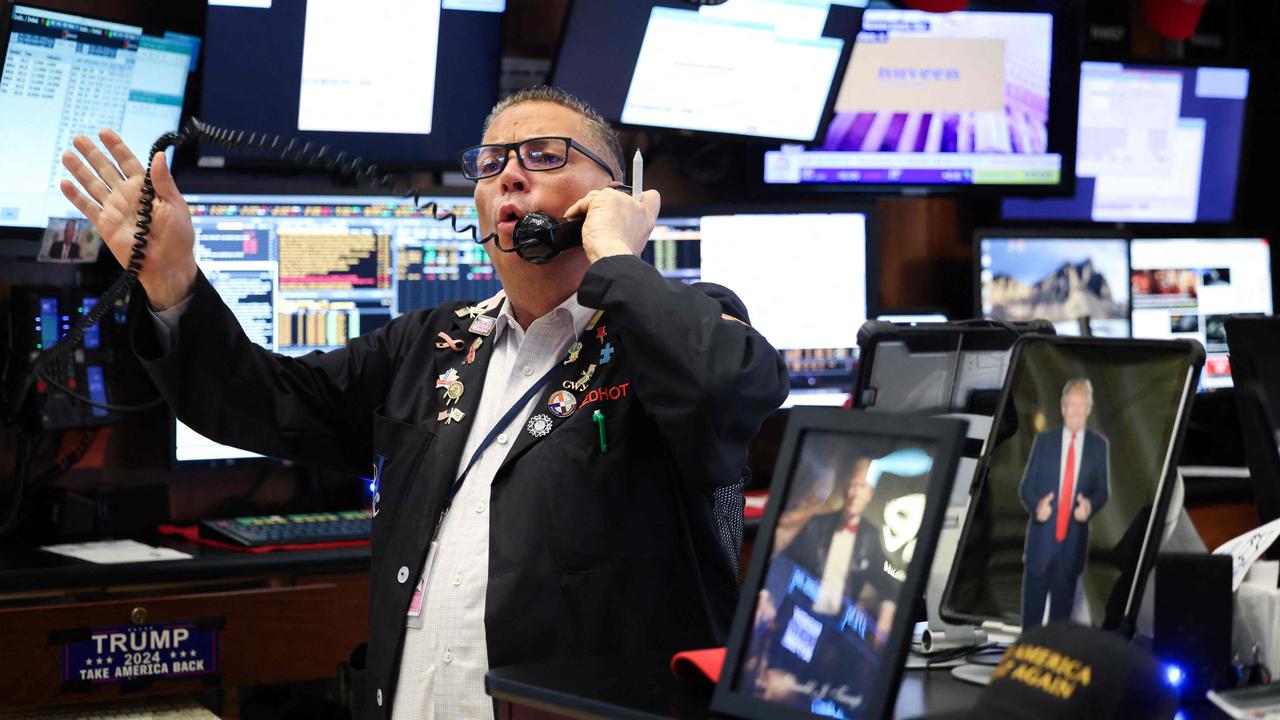Why it pays to be a contrarian investor as the trade war rages across the globe
Global markets are in turmoil but not everyone is in a state of panic and MFS Investment Management’s Zahid Kassam is making the most of the stock volatility.

Business
Don't miss out on the headlines from Business. Followed categories will be added to My News.
Contrarian investor Zahid Kassam is making the most of heightened volatility in global stocks.
So far this year it has been a wild ride in markets as investor optimism about the longer-term impact of US President Donald Trump’s policies waxed and waned before recovering in recent weeks.
However, the MFS Contrarian Capital Strategy co-managed by Mr Kassam returned 8 per cent before fees in the March quarter versus 4.81 per cent for its benchmark MSCI World Value Index and a 4.9 per cent loss for the S&P 500. MFS Investment Management is a global active funds manager with about $US603.8bn ($943bn) of funds under management worldwide.
Global funds co-managed by Toronto-based Mr Kassam across MFS’s contrarian global equity strategies exceed $US1.8bn.
Since inception in May 2023 the fund returned 13.3 per cent annualised before fees while the S&P 500 rose 18.4 per cent amid cries of “US exceptionalism” and hubris associated with the AI boom and the return of Mr Trump. But overconfidence at the start of the year and subsequent pessimism after the April 2 tariff announcements has been fertile ground for contrarian investors.
“The way we think about the world and doing our analysis, it’s range of outcomes-based,” Mr Kassam said. “We’re not trying to pinpoint a forecast or base case, anything like that, because it’s totally uncertain, and it (US trade policy) flip flops, so we need to be ready for a range of outcomes.”
After diving 21 per cent from a record high in February to a 16-month low in early April as the trade war ramped up, the S&P 500 rose 15 per cent as Mr Trump paused most of his so-called reciprocal tariffs for 90 days, pending the outcome of trade talks.
The US is talking up the prospect of deals and this week Mr Trump stopped auto tariffs from stacking on top of tariffs on steel and aluminium.
But a 7.3 per cent fall in the S&P 500 over the first 100 days of Trump 2.0 was the worst since Nixon’s second term in the 1970s. Extreme volatility in stocks has seen funds frequently adjusting existing positions while also opening some new positions when markets were bombed out.

“The way we think about being nimble … we’re leaning into our risk-rewards as they get better,” Kassam said. “Companies that we like – as they get cheaper – we want to add more to them.”
He has also sought to differentiate between stocks that are facing structural issues as a result of tariffs and the like and those that have overreacted to tariff news.
In recent weeks, both China and eurozone leaders have denied talking with the US on trade, even as the US stockmarket has rebounded in anticipation of trade deals.
In that backdrop, Mr Kassam isn’t broadly seeing much “margin of safety” in US stocks.
“Peak optimism on revenue growth into perpetuity, no down cycle coming, peak margins, peak valuation multiples … that is really a lot of what we are seeing,” he said.
“As contrarians we get excited when the bad news is in the stock price. That’s when we get in.
“We’re not really seeing a lot of that right now and going forward, even if tariffs are paused, and we do get these trade deals, I think things are tough.”
In terms of US recession risk, his view is that significant damage has already been done.
“It does seem that when we’re doing our company meetings, corporates are completely paralysed with regards to capital investment decisions, hiring decisions,” he said.
“Imagine running an auto company right now: where do you need to put your production? It costs a lot of money, and you need to rehire and train a lot of people if you’re going to move geographies, and then to flip-flop maybe in three and a half years, you just go back the other way.
“You need to generate a return on these investments and paybacks take years.”
He feels that some US brands are suffering more than their offshore peers, with potentially significant negative implications for earnings that may not be adequately reflected in share prices.
“Volatility is our friend, as contrarians, but to allocate more capital to the US and have a more constructive view, we need to see more fear embedded in the market and shares on the US side,” he said. His sense is that a bigger reality check on the embedded US economic growth optimism looms.
“The way we invest it’s more about where we are in the range of outcomes and what’s being priced in, and feels like something too optimistic, relative to what’s going on, is what’s being priced in.
“When we think about PE multiples in the US market, let’s say we go through a US recession, it’s just going to take that much longer for them to grow into their already elevated multiples. That’s something we’re thinking about a lot within this topic.”
In terms of new investments in stocks, he’s seeing better opportunities in Europe, where share prices are “already baking in bad news” on the economy, energy prices and the Ukraine war, whereas the US was pumped up on Trump euphoria and supposed US exceptionalism.
In his view the recent multi-decade high in the US stocks valuation premium versus Europe became too stretched, hitting about 40 per cent versus its long-term average of about 15 per cent.
“Even though we’ve had this, this little unwind in the year so far, if you zoom out at the long-term chart, it’s barely retraced,” Mr Kassam said. On top of that is the prospect of Russia-Ukraine peace, lower energy prices, interest rate cuts and trade deals.
This upside potential isn’t priced into the stocks he’s looking at in Europe, even though they are high return-on-capital cyclicals with global diversification.
Two recent buys for the fund are Deutsche Post and Campari.
DHL trades at a significant discount to US peers like UPS and FedEx because of its European and Chinese exposure and general trade sensitivity, but may have been sold off too much last month. Campari is also in the tariff crosshairs but Mr Kassam says its brand power is very strong.
“They have very high gross margins and pricing power and the market over-penalised them relative to the earnings hit they would face if they have to eat the whole hit (of tariffs) themselves.”
Originally published as Why it pays to be a contrarian investor as the trade war rages across the globe







